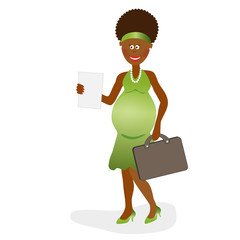CLAIM YOUR DIGNITY
Dear Friends,
I am deeply disturbed by the continuing revelations of the systematic abuse of women so prevalent in our society. The idea that the “assault of women” is nothing more than “locker room language” is both insulting to men and demeaning of women. Language is a vehicle for communicating the truths and the depths of the human heart. It is more than dangerous to think that language and the use of words and imagery is somehow neutral or “merely” playful. The way we speak and think about another person is, in itself, an issue of justice. The Interfaith Community cannot remain silent on the issue of women’s rights and dignity.
Consider the utter disregard for the lives of women and children in the latest attacks in Syria in particular. We cannot long endure a convenient isolationism by which we render ourselves first at the expense of other suffering people. The demeaning of women leads to a murderous indifference in which the vulnerable and powerless are rendered disposable. The Interfaith Peace Project has long recognized the interconnection of an individual’s heart and global well-being. We stand in solidarity with the people of Syria calling upon the World not to remain indifferent to their plight. We must not shut the doors of our hearts or borders to those who would seek a safe haven.
Women who claim their dignity anywhere stand up for people everywhere. The Interfaith Peace Project is pleased to inaugurate a series of reflective vignettes and questions to facilitate the claiming of one’s dignity. Our dear friend Carrie Knowles has written a series of situational stories inviting women to reflect in such a way as to find their voice and claim their dignity. This humble project is inspired by our participation in the International Women’s Day (every March 8th). We will publish these vignettes on the eighth of every month for the foreseeable future. Engage your friends in reflective dialogue. These situational stories can foster dialogue with men and women alike as we seek to respect all people everywhere. Please share with us your feedback and reflections. World peace and understanding begins in the depth of our minds, hearts and souls.
Peacefully,
Thomas P. Bonacci
Director
with The Board of Directors and
The Advisory Board
Vignette 1
 stock.adobe.com
stock.adobe.com
Amal is 40, an attorney with Lebanese and British citizenship. She is licensed to practice law in the U.S., the U.K., and before the International Court of Justice and the International Criminal Court. She has successfully represented clients in cases of violation of human rights.
In 2016, Amal spoke at the United Nations, before the UN Office on Drugs and Crime, about her client Murad, a Yazidi survivor, in legal action against ISIS for genocide, rape, and human trafficking. In March 2017, Amal again addressed the UN on “The Fight Against Immunity for Atrocities: Bringing ISIS to Justice.”
Time wrote about her UN appearance, linking it to International Women’s Day [March 8, 2017]. The article described Amal’s “chic pregnancy look,” noting that she “stepped out outside the UN headquarters in New York City on Wednesday, showing off her baby bump in a dark gray pencil skirt and matching blazer.”
Questions for Your Consideration
What do you think Amal’s feelings may be about the Time article?
What might Amal do in response to the article?
With whom is she likely to share her response?
What are the likely consequences of any action or response Amal makes?
When you consider your own faith tradition, ideally what would you like to see as her response? Is claiming one’s dignity an issue?
How does Amal’s experience resonate with your own experience as a woman?
How may your reflections deepen your intention to stand up for what is right and true?
To print a copy of this Vignette and the questions click: Vignette 1

Off